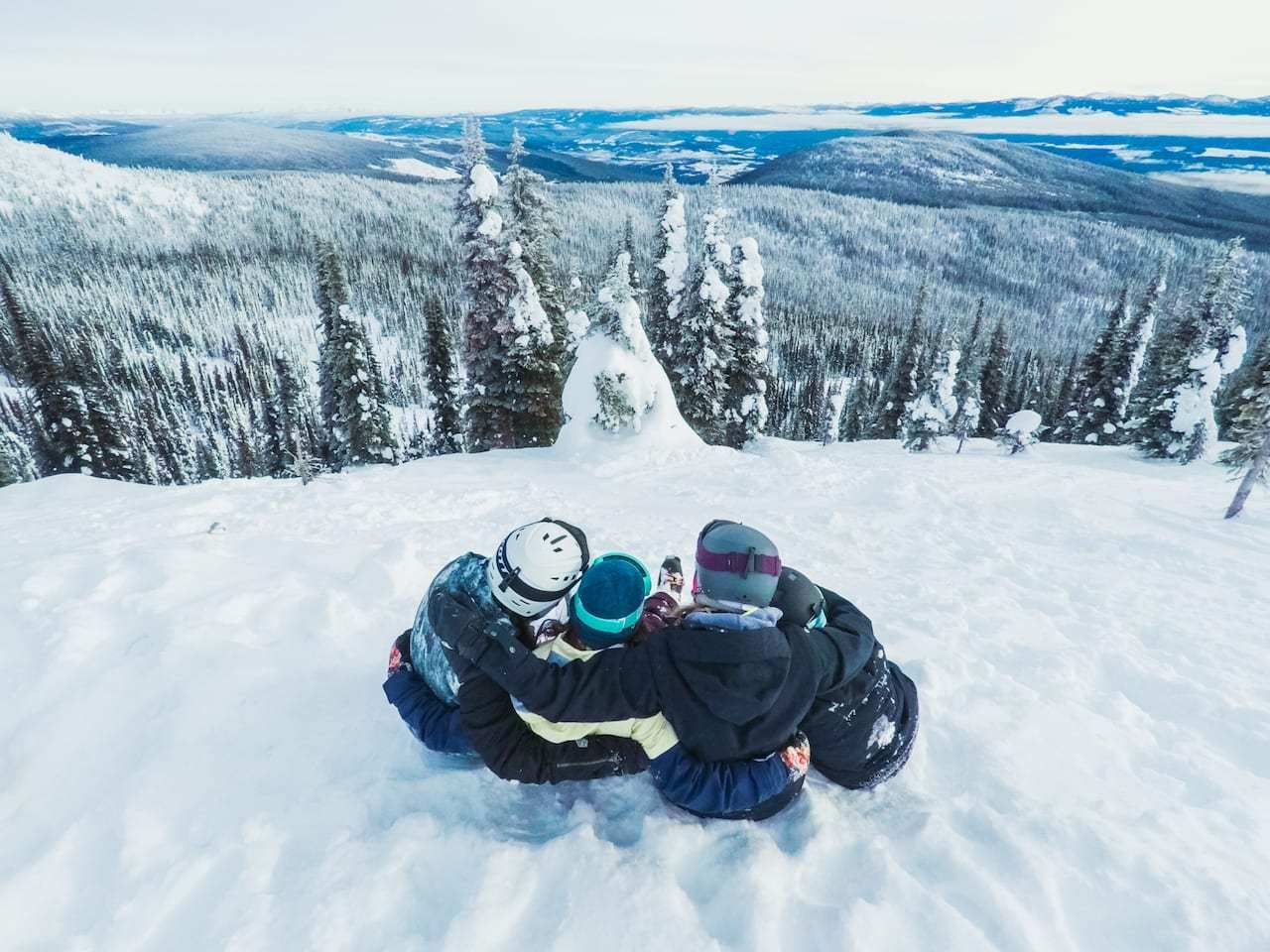
Two things kill more than anything—kindness, and avalanches. But only one is healthy towards our collective ski season this winter.
Ski season is going to be weird this season. Life is going to be weird this season.
There’s going to be more people in the backcountry than ever before and ski resorts (the ones that will still be open) are going to be crowded. Facemasks will be mandatory at virtually all ski areas and a lot of people are going to be stressed out. So let’s all be a little more kind this season, why don’t we? Let’s kill bad energy with kindness. Let’s ensure a positive experience both on and off the hill, and not kill each other—literally.
Kindness at the ski area
Liftlines, mandatory facemasks, grumpy skiers and snowboarders trying to get on the now socially-distanced hill: we can expect a unique experience at ski resorts across the U.S. this season. So let’s accept these changes, and be cool to all, especially those who choose to ride the chairs by themselves because they may have immune issues or live with someone who does.
Brandon Ott, Alta Ski Area’s marketing director, is urging skiers to work together this season in order to keep the powder dream alive. He said in an email correspondence:
Remember, we’ve never skied in a pandemic before. Things will be different and weird this ski season, but the amazing news is that we will be skiing. Slow down this winter, enjoy the mountains and the fresh air and please, please, please approach winter with an air of kindness never seen before. Kindness towards other skiers, kindness towards ski resort staff. It will make winter that much sweeter.
Ski resorts are meant to be shared—remember this. They are also one of the holiest, most relaxing places a snow enthusiast knows. Let’s keep it that way.

Kindness in the backcountry
Avalanches kill — you already know this, but it’s crucial to recognize that with more people skiing the backcountry than ever before this year, there is likely going to be a correlation with more human-triggered avalanches than ever before. It’s simple logic.
Utah Avalanche Center director Mark Staples says that we can expect an incredibly busy season in the backcountry this year, and gives advice on how we can prepare for it in order to let everyone recreate safely. He said in an email:
It seems fair to expect a very busy backcountry this winter. What this means for avalanches is that we need to be extra aware of where other people are, specifically if people are above or below us.
- If we are above another group, we can potentially trigger an avalanche that will impact them.
- If another party triggers an avalanche above us, it can hit us if we are below them in an avalanche runout zone. We need to learn how to recognize avalanche runout zones.
These are normal precautions to take any time, but we’ll need to be especially aware of them this winter and do our best to work together.
Another professional in the turbulent field of avalanches is Brandon Schwartz, an avalanche forecaster with the Sierra Avalanche Center. He said in an email that “for crowded situations in the backcountry it’s ever important to respect other groups, communicate with them, and be sure not to ski/ride above them or traverse above them.”
Because the more people in a backcountry area = the higher the risk that someone is going to trigger an avalanche. We will all have to hold ourselves to an even higher standard of safety because who wants to ruin someone’s day by burying them under a mountain of snow?
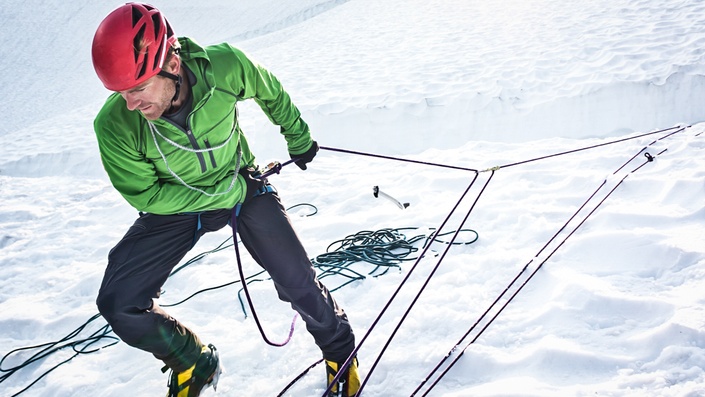
Mark Smiley is an IFMGA Certified Mountain Guide who leads private expeditions to Alaska, the Lower 48, Europe, and South America, and is the founder of Mountain Sense, an interactive online avalanche safety course. He too, touched on the importance of being kind in the mountains this season when he stressed in an email:
You can’t control what others say or do. You can only control what you say and do. So by applying the wise words of one influential man and one influential woman, most issues in the backcountry will be absolved:
“Do unto others as you’d have them do unto you.”-Jesus Christ
and
“The haters gonna hate, hate, hate, hate, hate. Baby, I’m just gonna shake, shake, shake, shake, shake I shake it off, I shake it off.”-Taylor Swift
Well put, Mark.
Kindness everywhere
You never EVER know what someone may be going through at first glance. They could seem like a calm, collected little center of the world on the surface, only to be a stressed and depressed mess on the inside. Maybe someone who seems a little off could have lost a loved one recently, to COVID or to life, or maybe they are running low on cash and are struggling to make ends meet. Maybe they got laid off, or this is the one day a week they get to ski and the resort is crowded with an air of rudeness. These are the people we should be extra kind to this season.
And this is not even to mention that we are going through one of the worst mental health crises in recent history.
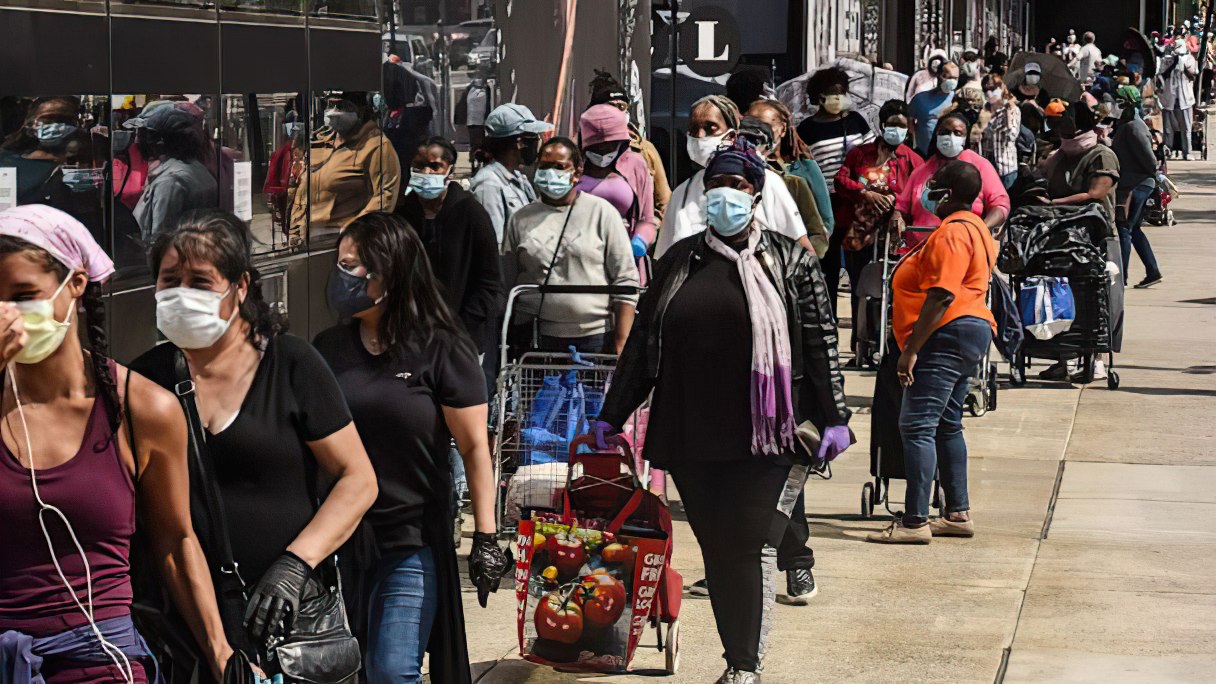
Findings from a public health study called “Prevalence of Depression Symptoms in US Adults Before and During the COVID-19 Pandemic” found that depression rates increased as much as three-fold since the start of the pandemic. This is an excerpt from that study:
Findings: In this survey study that included 1441 respondents from during the COVID-19 pandemic and 5065 respondents from before the pandemic, depression symptom prevalence was more than 3-fold higher during the COVID-19 pandemic than before. Lower income, having less than $5000 in savings, and having exposure to more stressors were associated with greater risk of depression symptoms during COVID-19.
Meaning: These findings suggest that there is a high burden of depression symptoms in the US associated with the COVID-19 pandemic and that this burden falls disproportionately on individuals who are already at increased risk.
This equates to nearly a quarter of people in the United States currently experiencing symptoms of depression, according to the study. We are living in two pandemics: one of a deadly respiratory disease and the other of depression.
NPR News reports that the mental health toll of the coronavirus pandemic is far worse than previous mass traumas, according to Catherine Ettman, a doctoral student in public health at Brown University and an author of the study, which was published in the current issue of the American Medical Association journal JAMA Network Open.
“We were surprised at the high levels of depression,” Ettman told NPR News. “These rates were higher than what we’ve seen in the general population after other large-scale traumas like September 11, Hurricane Katrina and the Hong Kong unrest.”
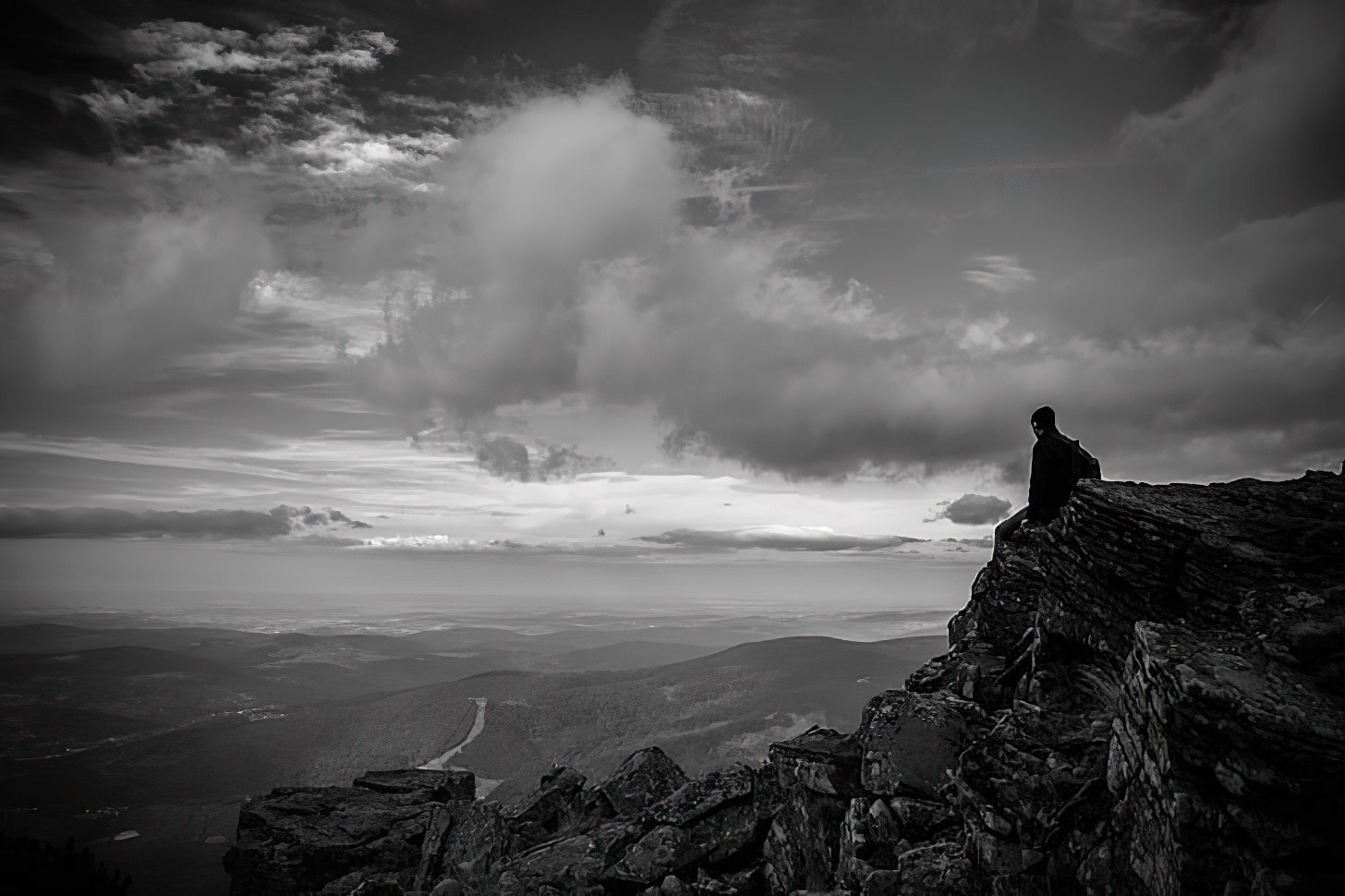
The current mental health crisis is so aggravated because it’s ongoing and there is no definitive end in sight, at least not until a vaccine is released and we are able to gain a sense of normalcy again, whether it be false or actual. The fear of catching COVID-19 lingers as does the sorrow that comes with people dying.
As the general manager of Alta Ski Area Mark Maughan put it:
“We’re all in this together, and our goal is that we can all keep skiing.”
So let’s do our best to keep skiing: with our friends, family, and those we cherish most in this weird, wild world.
What you can do to help
It’s the little things that can really make a difference, as cliché as it sounds. As noted earlier, you will never actually know what someone you don’t know is going through, or just how close they are to the edge even if they appear seemingly fine.
That’s why after reading this I call you to put just a little bit more love or care into your day. Hold the door open for a stranger. Smile at someone. Maybe lend an ear or a helping hand to someone who you think may be struggling in one way or another, even if just a little bit. Help someone at the ski area, let them take up their own chairlift, and hold back any sort of scowling eyes or piercing remark. Ask people how they’re doing—be a human. Because you never know when you just may save someone’s life or make a new friend that follows you through the rest of your powder-crazed life.
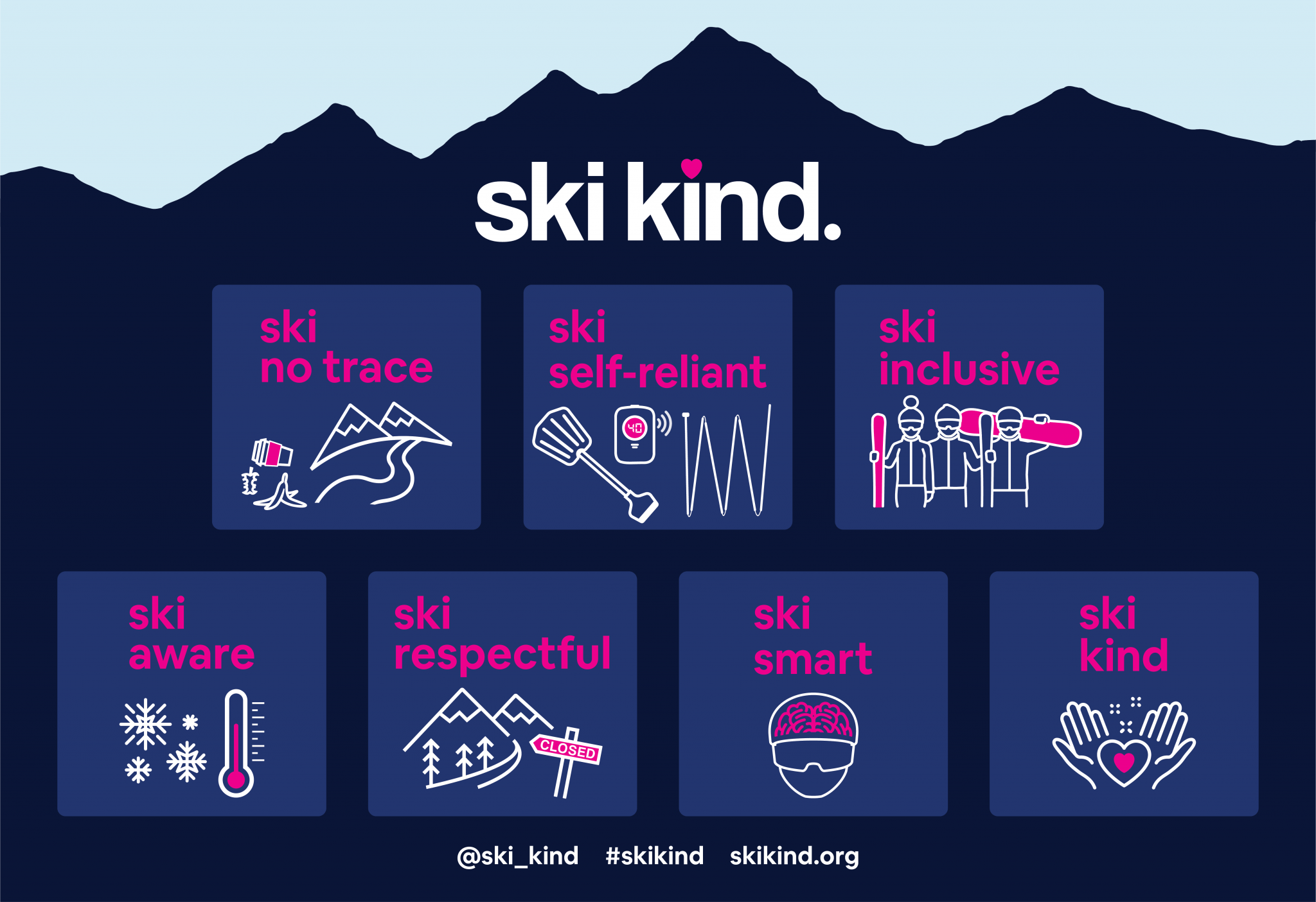
DO NOT “drop in” on top of people during periods of avalanche danger. Skiing above people during avalanche cycles is very unfriendly